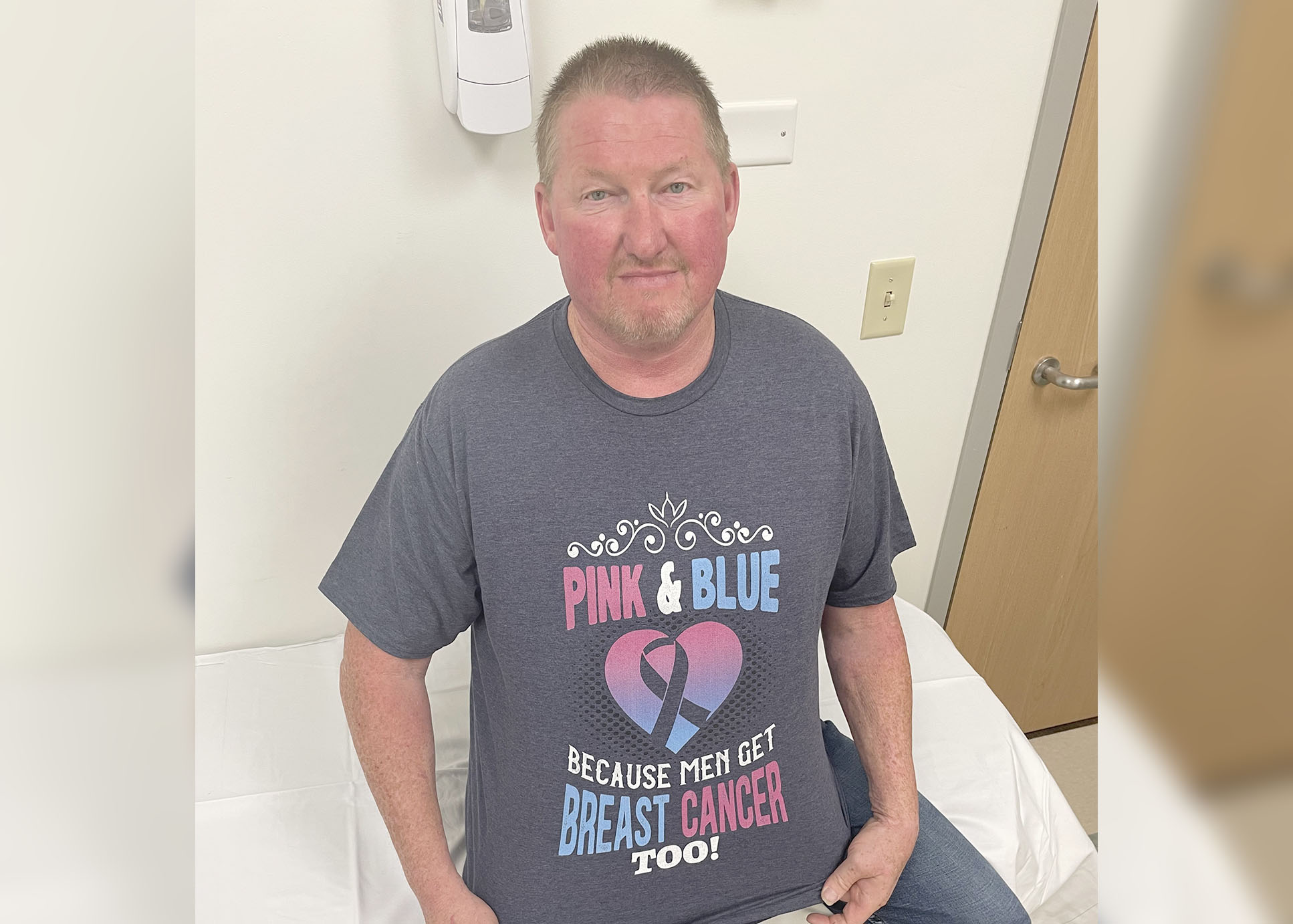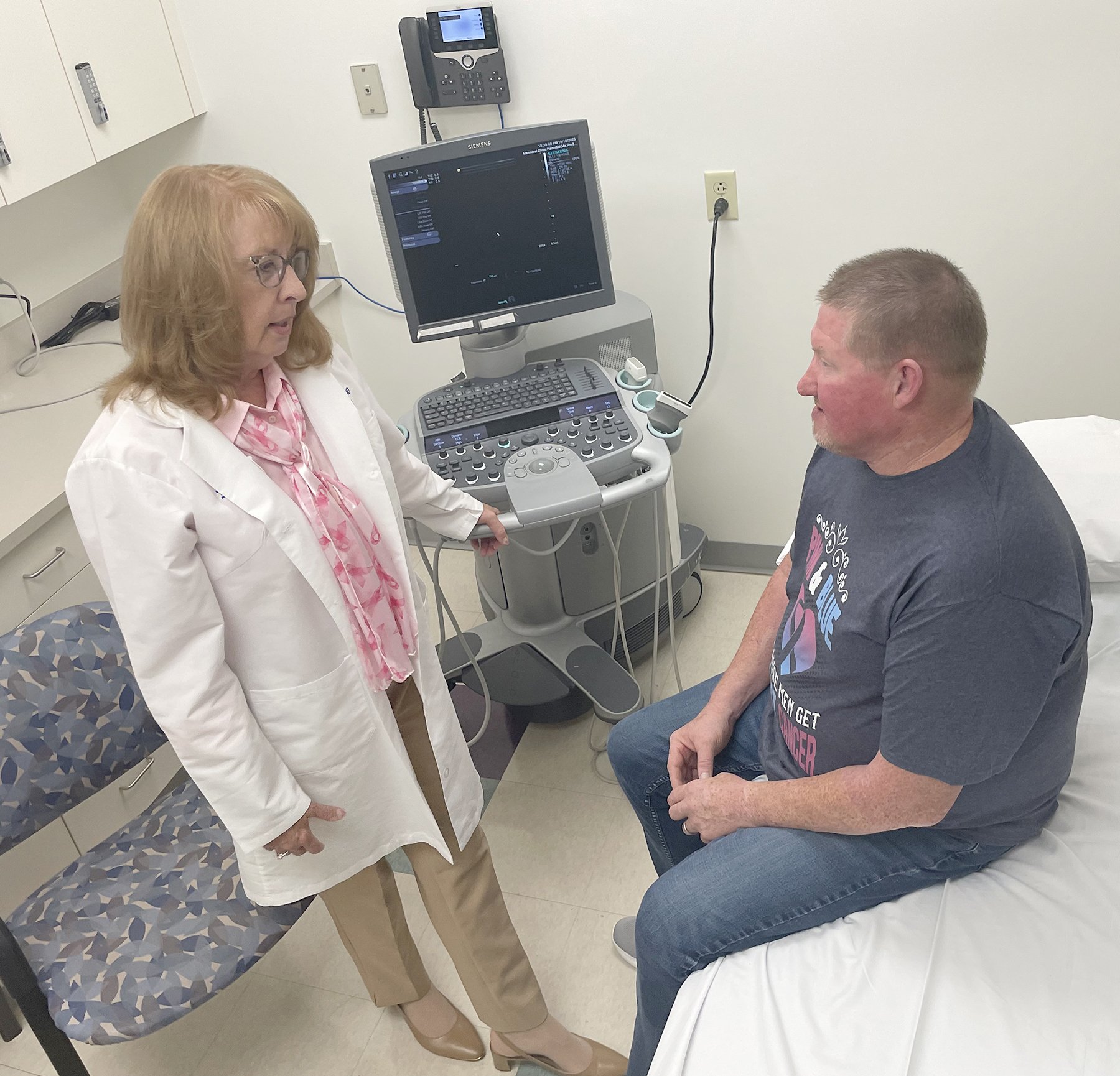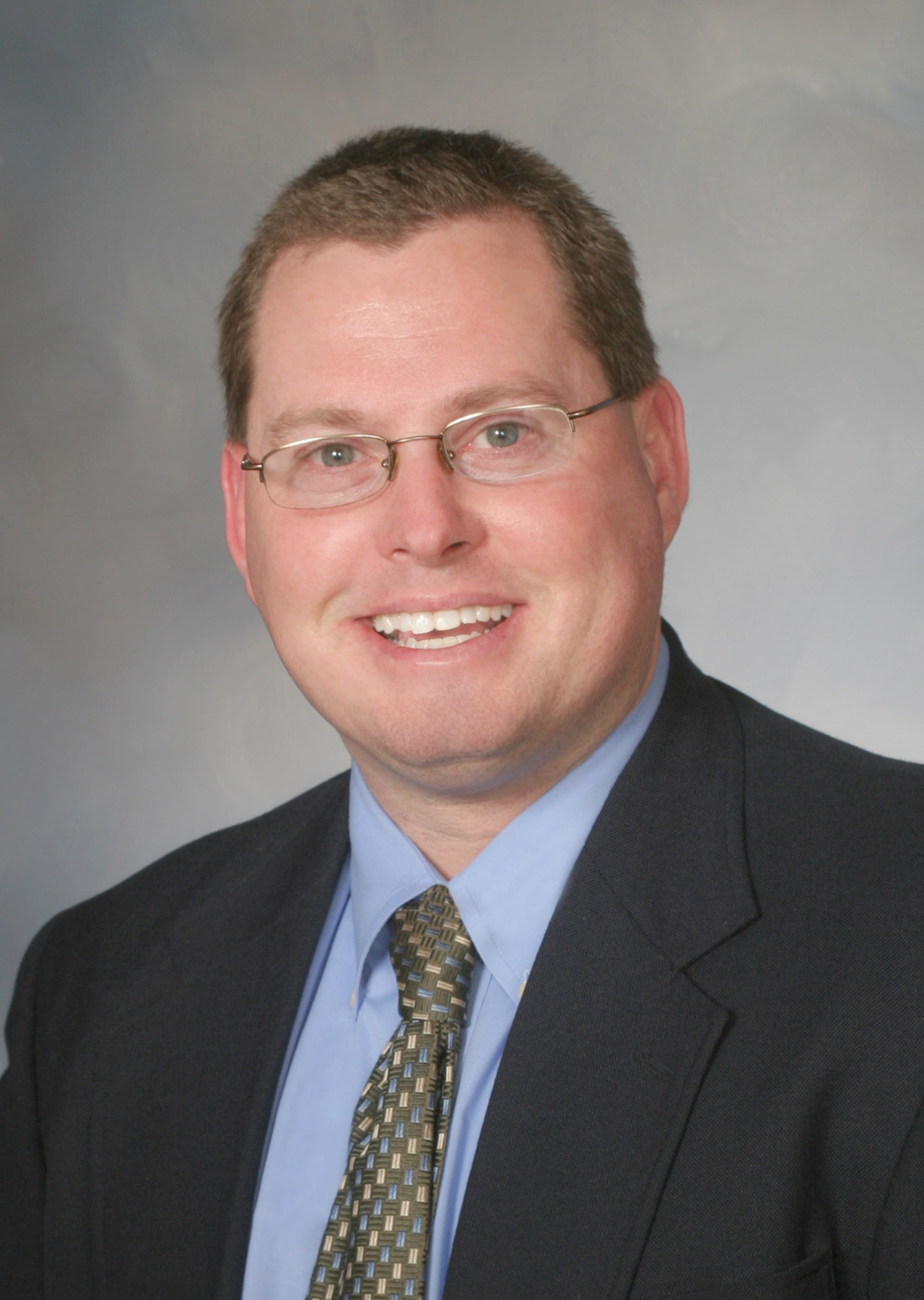
As service manager of Meyer Implement in Monroe City, Missouri, Greg Beaver helps provide people with answers. He leads a team that finds out why machinery is not working and fixes the problem.
But there is one answer Greg is pretty sure he will never know - how did he become “the one” – the one in every 730 men who develops breast cancer? Men account for 1% of all breast cancer cases diagnosed in a year.
“My mom’s mom had breast cancer. But my mom did not. The cycle broke with my grandma. I did gene testing and that came back negative. So where did it come from? There is no way to answer that. I was the chosen one,” he said with a laugh.
“Most men who develop breast cancer are going to have a strong family history of the disease,” added one of Greg’s doctors, Patricia Hirner, surgeon, Blessing Health Hannibal.
Rather than focusing on an answer to his condition, or trying to keep his unique situation private, Greg is dedicated to raising awareness of male breast cancer.
“Guys don’t think about it. I am living proof that it happens. I want all guys to know that breast cancer does happen to men.”
How Greg’s journey began
A husband, father of six and grandfather of two, 52-year-old Greg Beaver was born in Hannibal, grew up and still lives in rural Monroe City and loves the outdoors – including off-roading, hunting and fishing.
“I was taking a shower one day and I felt a knot, a bump in my chest. I just kind of blew it off. Several months later, I was lifting something at work and I put it against my chest and I felt something sticky,” Greg continued. I put my hand in my shirt and I had discharge coming out of my right nipple. That worried me.”
Unlike when he found the lump, this time Greg went to his primary care provider, Rodney Yager, DO, of Blessing Health Monroe City. Dr. Yager ordered a mammogram for Greg.

“Even though men think they can’t have mammograms, it’s amazing what our staff can do,” Dr. Hirner stated.
Based on the result of the mammogram, Dr. Yagar referred Greg to Dr. Hirner for a biopsy.
Dr. Hirner says gynecomastia is common among men. That’s enlarged breast tissue, more commonly referred to outside the medical world as “man boobs.” It is a non-cancerous condition involving the enlargement of breast tissue due to a hormonal imbalance.
“When the patient’s condition involves one breast and not both, as with Greg, then we become more concerned,” she said.
“Cancer wasn’t on my mind,” Greg stated. “I thought it was an inflamed gland.”
The biopsy showed he had a very early form of breast cancer.
“There was no embarrassment. It was shock,” Greg stated.
But this time Greg’s feeling of being the chosen one worked in his favor.
“Often when we have a male with breast cancer it is in an advanced stage because of a delay in seeking care,” Dr. Hirner observed.
Hat’s off to Greg and his Blessing Health medical team.

“Dr. Yager pointed me in the right direction and Dr. Hirner is an awesome surgeon,” he said.
While the cancer affected only Greg’s right breast, he opted for a double mastectomy to reduce the risk of cancer in the other breast. He was not a candidate to take medication that would have reduced future cancer risk.
“Most men get mastectomies because they do not have enough breast tissue to perform breast conserving surgery, a lumpectomy,” explained Dr. Hirner. “A male mastectomy means taking what breast tissue there is, and the nipple, and leaving the man with a flatter chest then they had before.”
Greg’s advice to his fellow man (men)
“My best advice is don’t underestimate anything,” he said. “If you feel something weird, different, out of the ordinary, get it checked. A lump, a bruise, anything. Get it checked. It does not matter if your male or female.”
“I should have a 100% full recovery,” Greg concluded. “I’m living proof of what can happen when you catch breast cancer early.”
“The thing to remember for men is that you need to live a healthy lifestyle, as do women, to reduce the risk for breast cancer,” Dr. Hirner added. “That means watching alcohol intake and maintaining a healthy weight, among other choices you make.”
To schedule a mammogram at Blessing Health Hannibal, or Blessing Hospital in Quincy or Illini Community Hospital in Pittsfield, call 217-223-8400, ext. 4800. For more information on breast cancer care at Blessing go to blessinghealth.org.
